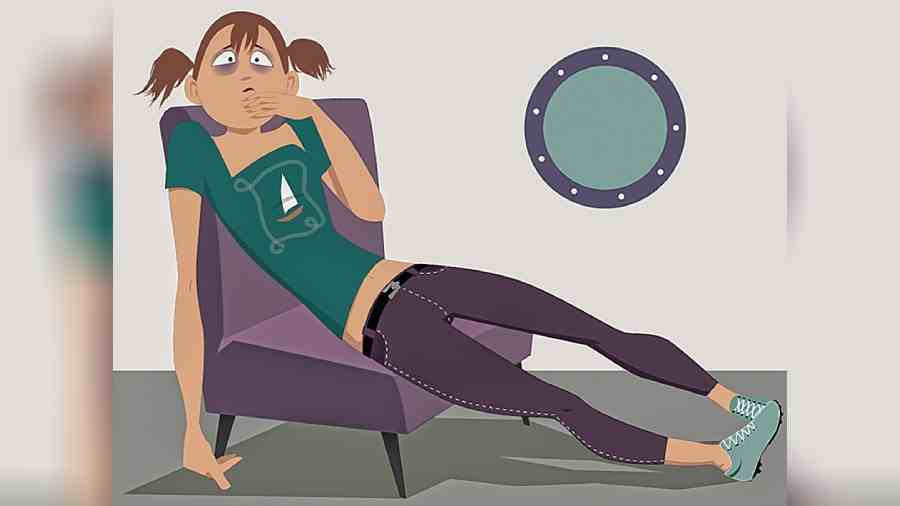Vacations are the time for travel, taking a break from routine, seeing new places or visiting relatives. It should be an enjoyable experience. Unfortunately, transportation to and fro becomes a nightmare if any accompanying member suffers from motion sickness.
Motion sickness is also known as kinetosis. It can develop in a car, boat, plane, train or even a giant wheel. The person develops uncontrollable nausea, vomiting, dizziness and sweating. It can start immediately or an hour after travel starts.
Although only one in three people is susceptible to motion sickness, almost everyone will vomit if exposed to motion that is intense enough.
Why does this occur? It is believed to be due to a mismatch between the visual cues the eyes perceive and the sensory information sent to the brain by the inner ear. Signals are sent to the brain from the limbs and the eyes. That is how the brain knows if we are moving or standing still. In addition, there is some fluid called endolymph in the inner ear, which helps with balance. The fluid moves with movement. The inner ear and endolymph sense motion and convey this information to the brain. However, if the eyes say otherwise, that is the person is not in motion, the brain becomes confused, leading to the symptoms of motion sickness. These symptoms are aggravated by anxiety, stress and fatigue. The severity and duration of these symptoms can vary depending on the individual as well as the mode of transportation.
It is commoner in women and in people who have sensitive inner ears. It runs in some families. In children, it starts after the age of two years.
So how should we tackle this sickness during travel so as not to make everyone else also miserable?
There are a few simple techniques to avoid motion sickness:
- Sit in the front of a car or bus facing forward and focus on a fixed point in the distance. This will reduce the mismatch between eyes and ears
- Choose a window seat on flightsand trains
- If possible, lie down, shut your eyes or sleep
- Drink plenty of water
- Avoid alcoholic and caffeinated beverages
- Eat small amounts frequently
- Avoid smoking
- Stop the vehicle for a short period frequently
- Listen to music
- Eat flavoured lozenges. Ginger flavour particularly reduces nausea.
Medicines like antihistamines and antiemetics can be used to prevent or treat motion sickness. Many of them cause drowsiness. They may require a prescription. Do not take more than the recommended dose, especially for children. Medication should be taken an hour before the travel starts.
A pressure point P-6 (Nei guan) is found on your wrist just under the edge of your index finger between the two central tendons. Massage both sides one at a time and then apply pressure for two minutes to reduce nausea from any cause, even pregnancy. Repeat on the other side.
Motion sickness bands called sea bands can be used on both wrists over the Nei guan point. Sea bands have a button. Position the band tightly with the button facing downward over the Nei guan point. They should be placed half an hour before travelling and then left on till the journey is over, even if it lasts a day or two. One band must be worn on each wrist to be effective. Both the bands and the massage are effective in pregnancy too.
The advantage of acupressure and motion sickness bands is that no medication is required. There are no side effects. They can be safely used even in children.
Now that you know what to do to tackle motion sickness, here’s wishing you and your family happy travels.
The writer has a family practice at Vellore and is the author of Staying Healthy in Modern India. If you have any questions on health issues please write to yourhealthgm@yahoo.co.in











